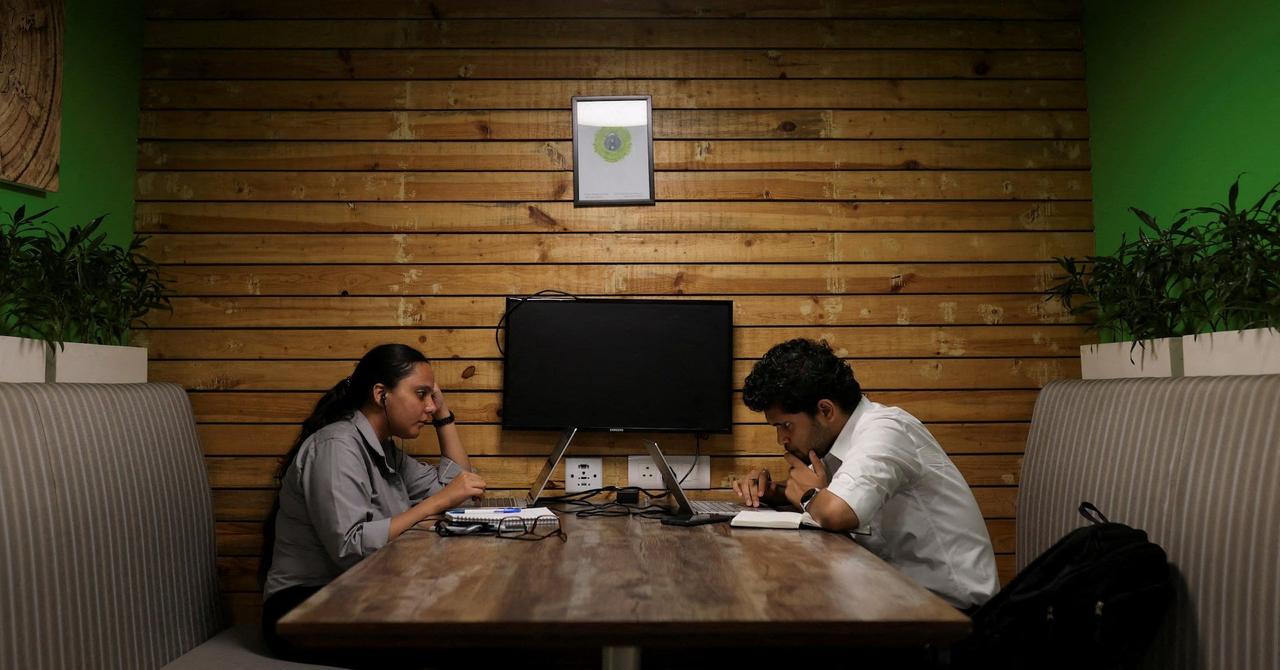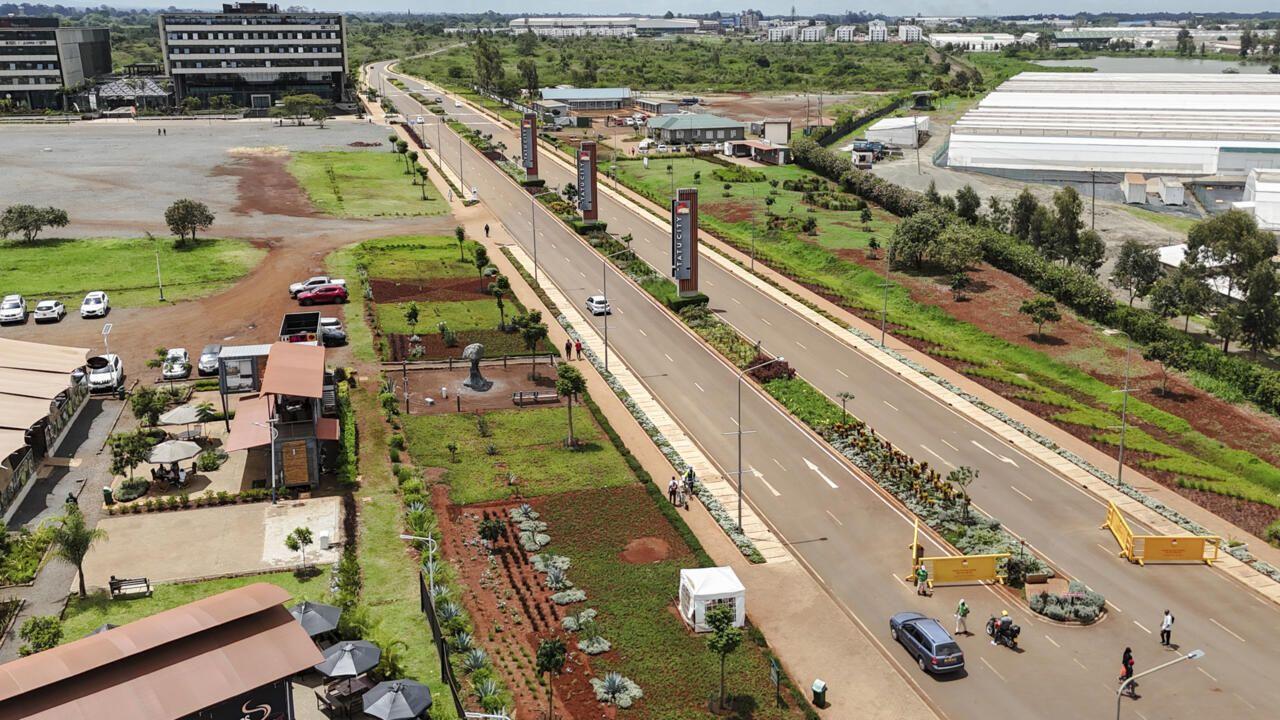AI's Impact on Africa's Outsourcing Sector: Women at Higher Risk of Job Loss
3 Sources
3 Sources
[1]
Study says more women than men in Africa will likely lose outsourcing jobs to AI
KIGALI, Rwanda (AP) -- More women than men working in Africa's outsourcing sector will likely lose their jobs by 2030 because of artificial intelligence and automation, a report said Thursday. The report, released at a conference on AI in the Rwandan capital, also said that the now-surging growth of the outsourcing industry on the African continent may slow, and it urged workers to boost their skills so that they can trade up to better jobs. More than 1,000 policymakers, business leaders, and interest groups were gathered in Kigali for the first-ever Global AI Summit for Africa. Rwandan President Paul Kagame, who addressed the conference on its opening day, called for more investments, innovation and creativity. African countries should "go back to the drawing board and build a strong foundation for connectivity," Kagame said. "Let's continue working together, and driving AI to reduce inequality, and allow more and more of our citizens to benefit from the good AI can deliver to all of us," he said. The new report by Caribou and Genesis Analytics in partnership with the Mastercard Foundation says that tasks performed by women are on average 10% more vulnerable to automation than those by men in the same sector. This disparity will exacerbate gender-based inequalities in the sector's workforce if not proactively addressed, it said. The study finds that lower-paying jobs, which make up 68% of the workforce, are particularly at risk. It found that up to 40% of human tasks in Africa's outsourcing sector could be automated. But AI experts at the summit said that with the right investments and training, women and youth could access better-paid, higher-skilled work than what the currently do. Jeremy Jurgen, managing director of the World Economic Forum, which is co-hosting the conference, said there was a shortage of AI workers and a need to invest in developing talent to address that. African leaders present called for more collaboration. "African countries need to have clarity on what they want to do with AI and what they're bringing to the table, then we can start talking about collaborating on AI without compromising our sovereignty," Nigerian Communication Minister Bosun Tijani said during the conference.
[2]
Study says more women than men in Africa will likely lose outsourcing jobs to AI
KIGALI, Rwanda (AP) -- More women than men working in Africa's outsourcing sector will likely lose their jobs by 2030 because of artificial intelligence and automation, a report said Thursday. The report, released at a conference on AI in the Rwandan capital, also said that the now-surging growth of the outsourcing industry on the African continent may slow, and it urged workers to boost their skills so that they can trade up to better jobs. More than 1,000 policymakers, business leaders, and interest groups were gathered in Kigali for the first-ever Global AI Summit for Africa. Rwandan President Paul Kagame, who addressed the conference on its opening day, called for more investments, innovation and creativity. African countries should "go back to the drawing board and build a strong foundation for connectivity," Kagame said. "Let's continue working together, and driving AI to reduce inequality, and allow more and more of our citizens to benefit from the good AI can deliver to all of us," he said. The new report by Caribou and Genesis Analytics in partnership with the Mastercard Foundation says that tasks performed by women are on average 10% more vulnerable to automation than those by men in the same sector. This disparity will exacerbate gender-based inequalities in the sector's workforce if not proactively addressed, it said. The study finds that lower-paying jobs, which make up 68% of the workforce, are particularly at risk. It found that up to 40% of human tasks in Africa's outsourcing sector could be automated. But AI experts at the summit said that with the right investments and training, women and youth could access better-paid, higher-skilled work than what the currently do. Jeremy Jurgen, managing director of the World Economic Forum, which is co-hosting the conference, said there was a shortage of AI workers and a need to invest in developing talent to address that. African leaders present called for more collaboration. "African countries need to have clarity on what they want to do with AI and what they're bringing to the table, then we can start talking about collaborating on AI without compromising our sovereignty," Nigerian Communication Minister Bosun Tijani said during the conference.
[3]
Study says more women than men in Africa will likely lose outsourcing tasks to AI
KIGALI, Rwanda -- More women than men working in Africa's outsourcing sector will likely see their tasks in the workplace replaced by automation and artificial intelligence by 2030, a report said Thursday. The report, released at a conference on AI in the Rwandan capital, also said that the now-surging growth of the outsourcing industry on the African continent may slow, and it urged workers to boost their skills so that they can trade up to better jobs. More than 1,000 policymakers, business leaders, and interest groups were gathered in Kigali for the first-ever Global AI Summit for Africa. Rwandan President Paul Kagame, who addressed the conference on its opening day, called for more investments, innovation and creativity. African countries should "go back to the drawing board and build a strong foundation for connectivity," Kagame said. "Let's continue working together, and driving AI to reduce inequality, and allow more and more of our citizens to benefit from the good AI can deliver to all of us," he said. The new report by Caribou and Genesis Analytics in partnership with the Mastercard Foundation says that tasks performed by women are on average 10% more vulnerable to automation than those by men in the same sector. This disparity will exacerbate gender-based inequalities in the sector's workforce if not proactively addressed, it said. The study finds that lower-paying jobs, which make up 68% of the workforce, are particularly at risk. It found that up to 40% of human tasks in Africa's outsourcing sector could be automated. But AI experts at the summit said that with the right investments and training, women and youth could access better-paid, higher-skilled work than what the currently do. Jeremy Jurgen, managing director of the World Economic Forum, which is co-hosting the conference, said there was a shortage of AI workers and a need to invest in developing talent to address that. African leaders present called for more collaboration. "African countries need to have clarity on what they want to do with AI and what they're bringing to the table, then we can start talking about collaborating on AI without compromising our sovereignty," Nigerian Communication Minister Bosun Tijani said during the conference.
Share
Share
Copy Link
A new report reveals that women in Africa's outsourcing sector are more likely to lose their jobs to AI and automation by 2030, highlighting the need for upskilling and proactive measures to address gender-based inequalities.

AI Threatens Jobs in Africa's Outsourcing Sector, Women Most at Risk
A new report released at the first-ever Global AI Summit for Africa in Kigali, Rwanda, has revealed that artificial intelligence (AI) and automation are poised to significantly impact the outsourcing sector in Africa, with women facing a higher risk of job displacement by 2030
1
2
3
.Key Findings of the Report
The study, conducted by Caribou and Genesis Analytics in partnership with the Mastercard Foundation, highlights several crucial points:
- Gender disparity: Tasks performed by women are, on average, 10% more vulnerable to automation than those performed by men in the same sector
1
2
3
. - Lower-paying jobs at risk: 68% of the workforce, primarily in lower-paying positions, is particularly vulnerable to automation
1
2
3
. - Automation potential: Up to 40% of human tasks in Africa's outsourcing sector could be automated
1
2
3
.
These findings suggest that without proactive measures, the growing trend of automation could exacerbate gender-based inequalities in the sector's workforce
1
2
3
.Industry Growth and Challenges
The report also indicates that the currently surging growth of the outsourcing industry on the African continent may slow down due to increased automation
1
2
3
. This presents a significant challenge for a sector that has been a source of employment and economic growth in many African countries.Related Stories
Calls for Action and Investment
In response to these challenges, several key figures at the summit emphasized the need for action:
- Rwandan President Paul Kagame called for more investments, innovation, and creativity, urging African countries to "go back to the drawing board and build a strong foundation for connectivity"
1
2
3
. - Jeremy Jurgen, managing director of the World Economic Forum, highlighted a shortage of AI workers and stressed the need to invest in developing talent
1
2
3
. - Nigerian Communication Minister Bosun Tijani emphasized the importance of African countries having clarity on their AI goals and what they bring to the table
1
2
3
.
Opportunities Amidst Challenges
Despite the potential job losses, AI experts at the summit pointed out that with the right investments and training, women and youth could access better-paid, higher-skilled work than they currently do
1
2
3
. This suggests that while AI poses challenges, it also presents opportunities for workforce development and economic growth.The Global AI Summit for Africa, attended by over 1,000 policymakers, business leaders, and interest groups, serves as a platform for discussing these critical issues and forging a path forward for AI development and implementation on the continent
1
2
3
.References
Summarized by
Navi
Related Stories
AI's Uneven Impact: Women's Jobs at Higher Risk of Automation, UN Report Reveals
20 May 2025•Technology

Kenya's AI-Powered Outsourcing Boom: Opportunities and Challenges in the Digital Era
09 Jul 2025•Business and Economy

Women Recognize the Importance of AI for Career Advancement, Despite Lower Interest
11 Aug 2024

Recent Highlights
1
Google Gemini 3.1 Pro doubles reasoning score, beats rivals in key AI benchmarks
Technology

2
Meta strikes up to $100 billion AI chips deal with AMD, could acquire 10% stake in chipmaker
Technology

3
Pentagon threatens Anthropic with supply chain risk label over AI safeguards for military use
Policy and Regulation





